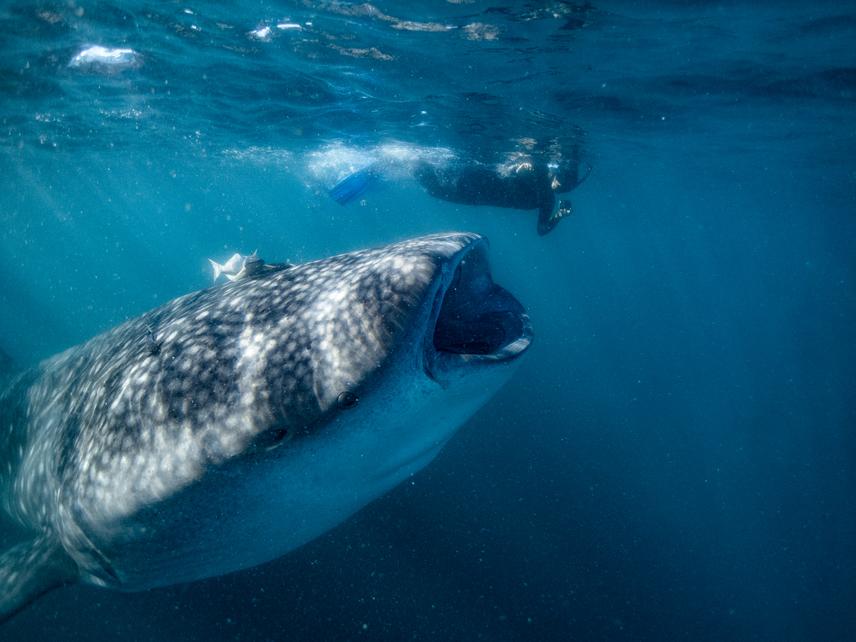Alberto García Baciero
Juvenile whale sharks aggregate seasonally from early June to December in Bahía de Los Ángeles, Baja California (Mexico), because of the abundant zooplankton. The abundance of whale sharks has boosted ecotourism around the species, greatly benefiting the local economy. However, despite the existence of a management plan for swimming and observing the species since 2001, increased tourism demand and insufficient enforcement by environmental authorities may lead to boat collisions and detrimental practices, resulting in injuries to the sharks.

A whale shark with a severe laceration caused by a boat propeller. © Arthur Caulliez.
While tourism's effects on whale shark behaviour have been studied, the impact of these interactions on the sharks' health remains unassessed. This project seeks to improve whale shark conservation by moving towards sustainable whale shark-human interactions in Bahía de Los Ángeles. We will evaluate the effectiveness of the management plan by assessing the severity and type of injuries on whale sharks, as well as their healing and recovery capabilities. A healthier whale shark population will ensure the long-term sustainability of the tourism industry in Bahía de Los Ángeles.